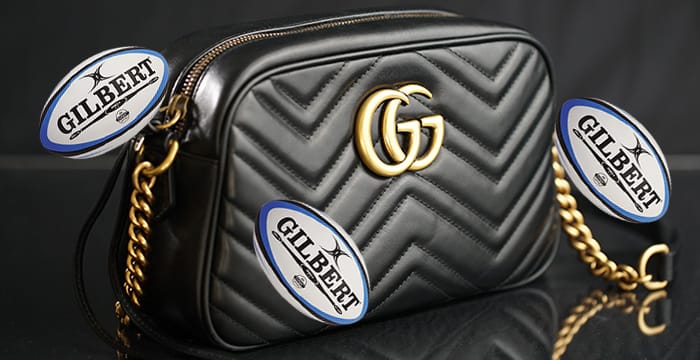Career success shouldn’t come at the sacrifice of being yourself, says City lawyer turned career coach Husnara Begum

Law isn’t a suitable profession for a wheelchair user. Sorry, we can’t offer you a place on our law degree programme because our library doesn’t have wheelchair access. It will be great to get more Indian trainees into our firm because India is the next big thing (for the record I am not Indian!). How will our clients react to working with a disabled lawyer? You don’t look or behave like a typical disabled person. I hope you’re not speeding in that wheelchair. And my all-time favourite: you only got a training contract with a magic circle firm because you’re an Asian female who uses a wheelchair and the first in your family to go to university — are you sure you’re not a lesbian as well? This is just a small sample of the barrage of negative and inappropriate comments I’ve had to put up since starting my journey into the legal profession.
Granted most of these examples date back to the early and mid-1990s. This was before disability discrimination laws officially came into force and when City law firms were dominated by middle aged, middle class, Oxbridge-educated white men. Since then progress has been made across the profession to attract trainees from a broader mix of backgrounds and initiatives such as contextual recruitment are definitely a move in the right direction. But focussing on recruiting trainees from disadvantaged backgrounds doesn’t go far enough. Efforts now need to shift towards retention. I know from my own personal experience of training as a magic circle lawyer that the world I grew up in where 13 of us lived in a three-bedroom terraced house in one of the poorest areas of Luton could not be any further removed from the shiny gleaming offices occupied by City law firms.
I may have had the academic credentials to succeed but when it came to ‘fitting in’ with the other trainees in my intake and more significantly being taken seriously by partners I had yet another mountain to climb. This one was bigger than anything else I had encountered and with no safety harnesses in place I realised that if I didn’t quickly adapt my personal image, the way I interacted with colleagues and clients and absorb myself into middle class hobbies and pass times I would never reach the summit. So, to avoid crashing to the ground I ditched the hand me downs I inherited from my older sisters, treated myself to a Gucci handbag, removed the go-faster stickers from my wheelchair, swotted up on Shakespeare, feigned an interest in rugby (to be honest I still don’t understand the rules), and even bought my first ever CD in classical music.
To be fair I scrubbed up pretty well but couldn’t help thinking that all this came at a hefty cost. I was losing my true cultural identity and it all felt a bit fake. Indeed, when I look back and reflect on my early years of working in the City, the recurring question I kept asking myself is why was the onus on me to change? Why didn’t the lawyers around me learn to adapt instead? Indeed, that is precisely what one black trainee I was speaking to recently asked me when we discussed what new entrants to the profession, who hail from less privileged backgrounds, can do to create positive first impressions. Understandably, that particular trainee’s response was why don’t partners have a go a listening to RnB or hip hop rather than expect me to get excited about Glyndebourne (yes I did have to look that up) or a Midsummer Night’s Dream? And why do most social activities put on for trainees and vacation scheme students involve excessive amounts of alcohol?
So, who should the responsibility lie with? Is it acceptable for partners to expect rough diamonds to arrive at their offices polished or should law firms embrace a culture that celebrates diversity? Personally, I think we should all do our bit. Heightened self-awareness that gets you thinking more carefully about how you are perceived by colleagues and clients irrespective of age, gender, ethnicity, religion, sexuality or disability is an important attribute commonly possessed by high achievers. As is the ability to be more versatile. Indeed, I’m now quite the expert and feel just as confident putting a white male partner ten years my senior at ease when running a media training session as when I discuss the latest make-up trends with my teenage nieces. I also feel proud telling stories about my Bangladeshi heritage and how our cuisine differs to what is typically on offer at an Indian restaurant. And most recently I turned up to an awards dinner wearing a sari and much to my surprise rather than sticking out like a sore thumb I received so many compliments. And the best bit was not having to fork out a fortune on a new cocktail dress.
That said, firms also need to up their game to ensure work is allocated fairly because the exposure a trainee or junior lawyer gains to key clients, partners and top deals will have a huge impact on their career progression. Sadly, very few firms have got this right with work still being unfairly distributed to ‘pet’ trainees/associates. Unconscious bias training maybe a solution in this context, but this is yet another thorny issue for law firm diversity professionals with many telling me that there is insufficient research available on whether it even works?
Mentoring is widely accepted as a highly personal and effective intervention that can enhance the career development of underrepresented groups and is increasingly being used successfully in the context of gender diversity. But, as well as the cost, offering mentoring to trainees who have been recruited via diversity initiatives may not be as straight forward because firms potentially run the risk of offending such individuals for being ‘singled out’ as needing additional support for not being the ‘right type’. What’s more, aren’t the trainees perfectly within their rights to ask why they should change and not their senior colleagues?
Husnara Begum is a career coach and outplacement specialist with a particular focus on working with final seat trainees and junior associates. She was previously a legal affairs journalist and a solicitor at Linklaters.


